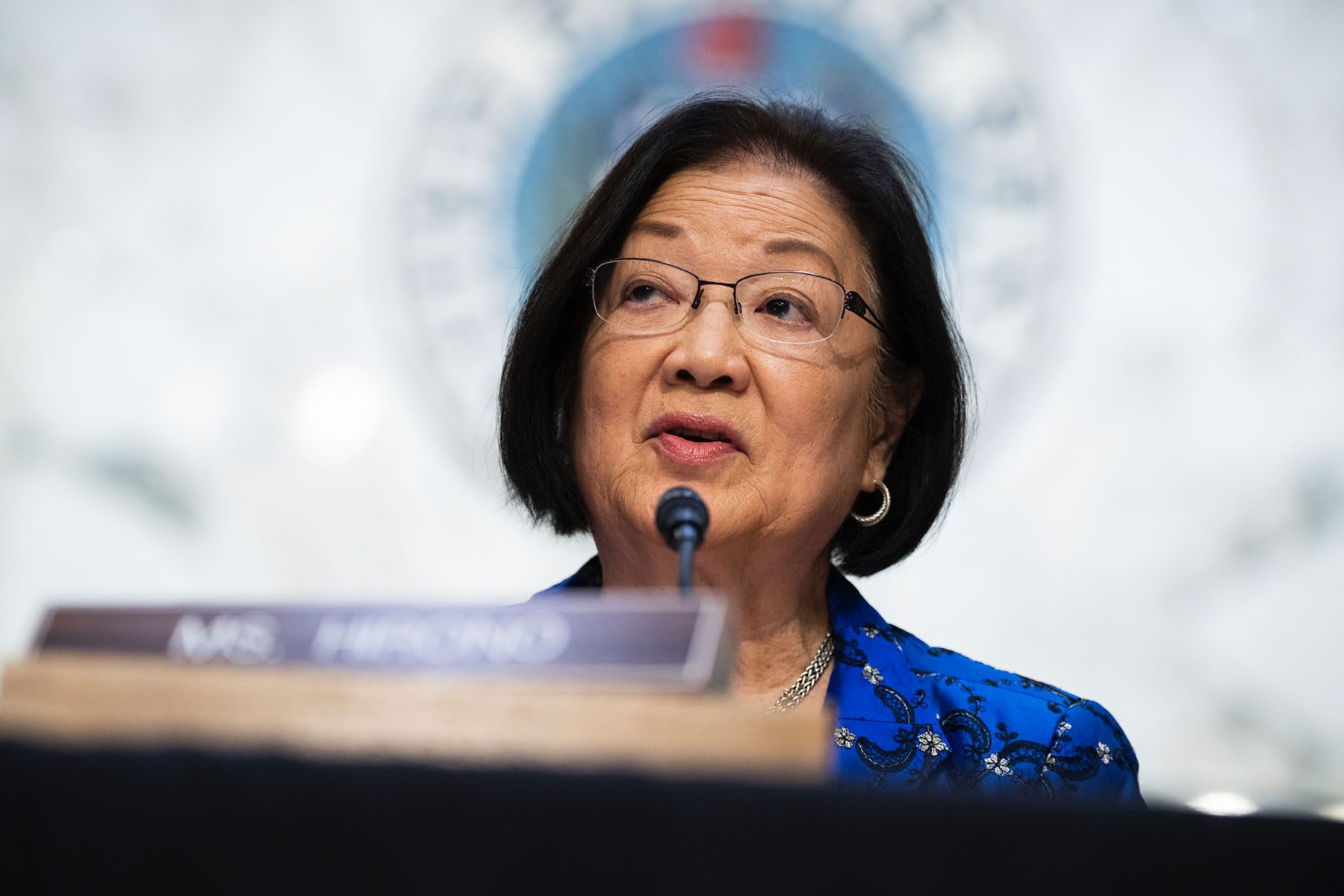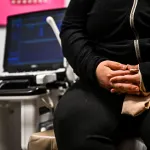Three Democratic senators sent a letter Thursday urging a drug company to add miscarriage as a use for the drug mifepristone. Currently, the label only indicates mifepristone for use in medication abortion, though the drug can be safely — and legally — used in miscarriage management in the first trimester.
Sens. Mazie Hirono of Hawaii, Maggie Hassan of New Hampshire and Elizabeth Warren of Massachusetts sent a letter to Danco Laboratories, one of the manufacturers of mifepristone, urging them to submit an application to the Food and Drug Administration (FDA) to add miscarriage management to the medication’s label. The senators said an update to the label would allow health care providers to prescribe and patients to use mifepristone for miscarriage management without fear of criminal repercussions, which may have felt since the overturn of Roe v. Wade this past summer.
Mifepristone taken in combination with misoprostol is the most effective regimen for the medical management of miscarriage and medication abortions. Patient access to this drug is currently limited because of both the absence of FDA approval of mifepristone explicitly for miscarriage management.
As a result of the ruling in Dobbs v. Jackson Women’s Health Organization — which led to Roe’s overturn — mifepristone is now in the crosshairs of anti-abortion lawmakers. Some state lawmakers have pursued a strategy to effectively ban medication abortion by banning mifepristone itself. Others have tried to make it illegal for mifepristone to be mailed, while others have moved to ban abortion pills outright. Just this week, Republicans in Iowa filed legislation in their statehouse to make it illegal to manufacture and prescribe mifepristone in their state. Last month, the Justice Department issued a lengthy legal opinion saying that the United States Postal Service may deliver mifepristone in states that have banned or limited its use because the sender cannot know if the pills will be used illegally.
Hirono told The 19th that she is concerned with holistic access to reproductive health care, especially for marginalized people — a situation that has only been further restricted following the Dobbs ruling.
“We know that even when abortion was available everywhere, poor people and minority women did not have access to this kind of care,” she said. “Medicare and Medicaid did not fund abortions. This whole situation has been exacerbated with this wholesale attack on a person’s reproductive decisions — anti-abortion people are doing everything they can right now, in every way, including trying to stop the use of certain drugs and contraception. It’s an all-out assault on bodily autonomy,” Hirono said.
The letter was also signed by Democratic Sens. Richard Blumenthal of Connecticut, Jeanne Shaheen of New Hampshire, Ron Wyden of Oregon, Kirsten Gillibrand of New York and Alex Padilla of California. The letter is also supported by the Expanding Medication Abortion Access (EMAA) project, who were some of the signers of a coalition-led letter this fall to the FDA requesting a mifepristone label change to include miscarriage management. In that letter, advocates stressed that because people of color and low-income people are also the most likely to be punished — including facing jail time — for seeking abortions.
Hirono emphasized the importance of medical care for people losing their pregnancies, which disproportionately impacts Black women. “Some of us are doing everything we can to make available the kinds of treatments that women should have available to them, including this particular drug for early miscarriage management — especially because miscarriage hits Black women and minority women disproportionately,” Hirono said.
One in 6 known pregnancies globally end in miscarriage, and in unrecognized pregnancies — where someone isn’t not aware of a pregnancy until well into the second trimester — it occurs in about 25 percent of cases. Miscarriage is more common among pregnant people who are Black, low income or exposed to environmental pollutants.
Hirono said that post-Dobbs, “a convergence of a number of factors” is leading to compounded adverse outcomes and barriers to reproductive health care access for marginalized people.
For Black women, lack of economic resources and living in hazardous, high-risk environments creates a dangerous situation, Hirono said, which is only intensified when their pain and symptoms are frequently dismissed by health care providers. It’s why she says a label change for mifepristone is an important step towards equity for a group of Americans who have already faced so much harm and continued risk when it comes to their health and safety.
“The chaos that was created by the Dobbs decision impacts everybody,” Hirono added. “There is no state that is safe from efforts to try to stop people from controlling their own bodies.”
In a state where laws have been put into place to limit the prescribing and dispensation of mifepristone, patients who are miscarrying are facing so much “chaos and fear,” Hirono said. Doctors have told her that “they don’t know what to do” in these scenarios, because of concerns of being charged with a crime.
The resulting scenario, she said, is one where those who can afford to travel are coming to states like Hawaii seeking the care they need — but even in Hawaii, a state with expansive protections for abortion access, she said she is hearing from doctors who are concerned about whether they can legally treat patients who have traveled in from states with severe restrictions that carry criminal implications.
Looking ahead, Hirono said in addition to her desire to see a label change for mifepristone and the codification of Roe, she hopes that the Department of Defense and the Department of Veterans Affairs will “do everything they can to provide support for the service members and veterans” who also find themselves in need of abortion services.
“We have to continue to talk about how important it is for women to have control over their bodies. It is not up to a bunch of politicians to tell us what to do. The question I truly have is, what is the impetus that would say that these people should have power and control over our bodily decisions? I really don’t get that.”







